Financial System Adaptability and Resilience
This research group investigates critical aspects of financial system adaptability and resilience. First, it analyses the impact of natural disasters on financial systems. Second, the group aims to investigate the effects of political preferences for the green transition. Third, the group's research analyses the role of culture in economies.
Research Cluster
Financial Resilience and RegulationYour contact

Mitglied - Department Financial Markets
EXTERNAL FUNDING
07.2016 ‐ 12.2018
Relationship Lenders and Unorthodox Monetary Policy: Investment, Employment, and Resource Reallocation Effects
Leibniz Association
We combine a number of unique and proprietary data sources to measure the impact of relationship lenders and unconventional monetary policy during and after the European sovereign debt crisis on the real economy. Establishing systematic links between different research data centers (Forschungsdatenzentren, FDZ) and central banks with detailed micro-level information on both financial and real activity is the stand-alone proposition of our proposal. The main objective is to permit the identification of causal effects, or their absence, regarding which policies were conducive to mitigate financial shocks and stimulate real economic activities, such as employment, investment, or the closure of plants.
01.2015 ‐ 12.2019
Interactions between Bank-specific Risk and Macroeconomic Performance
German Research Foundation (DFG)
Refereed Publications

Cultural Norms and Corporate Fraud: Evidence from the Volkswagen Scandal
in: Journal of Corporate Finance, October 2023
Abstract
We examine a corporate governance role of local culture via its impact on consumer behavior following corporate scandals. Our proxy for culture is the presence of local Protestantism. Exploiting the unexpected nature of the Volkswagen (VW) diesel scandal in September 2015, we show that new registrations of VW cars decline significantly in German counties with a Protestant majority following the VW scandal. Further survey evidence shows that, compared to Catholics, Protestants respond significantly more negatively to fraud but not to environmental issues. Our findings suggest that the enforcement culture in Protestantism facilitates penalizing corporate fraud.
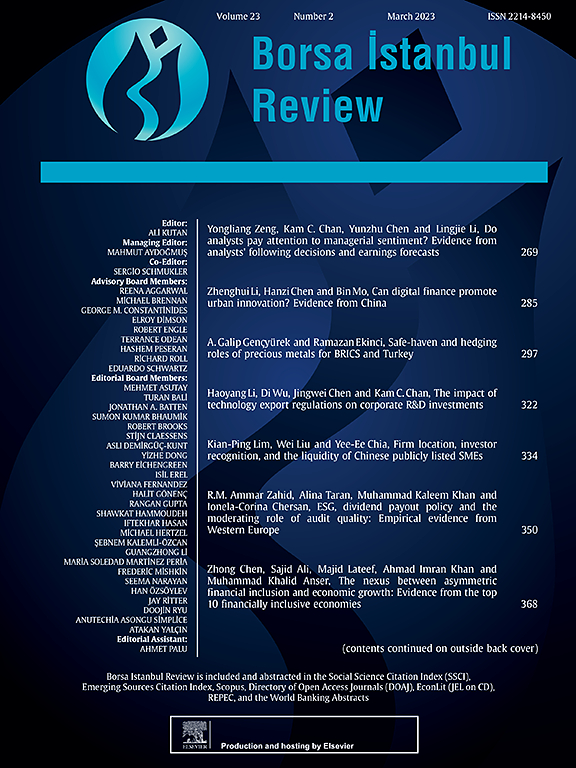
What Makes the Difference? Microfinance Versus Commercial Banks
in: Borsa Istanbul Review, No. 4, 2023
Abstract
We make a comparison of microfinance banks (MBs) and commercial banks (CBs) in terms of efficiency, business orientation, stability, and asset quality by analyzing a large sample of banks from 60 countries around the world. Our findings indicate that microfinance banks have higher intermediation, non-interest income, wholesale funding and liquidity, but lower efficiency and asset quality. These significant variations are influenced by smaller microfinance banks and are driven mostly to African and Latin American microfinance banks.
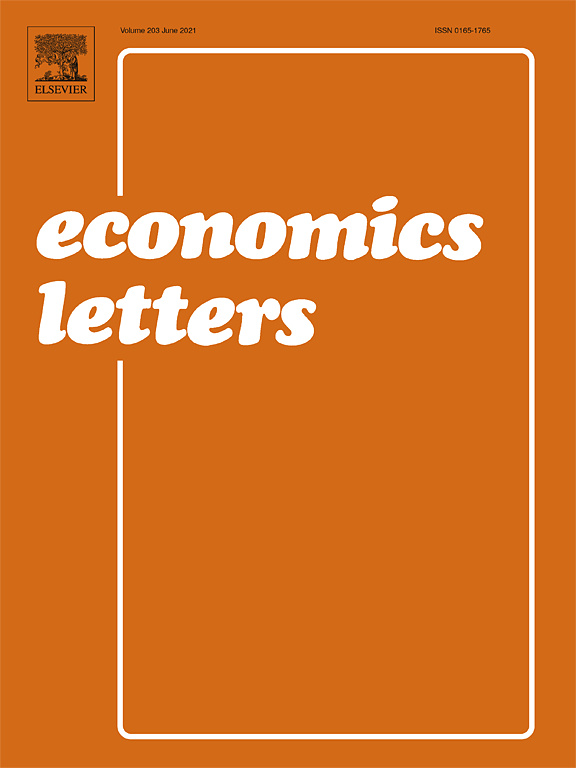
Political Ties and the Yield Curve
in: Economics Letters, July 2023
Abstract
We examine the effect of political ties with the US on sovereign yields and ratings at various horizons. We find beneficial effects across both short- and long-term yields and ratings. Specifically, we find that stronger political ties with the US affect mainly the level of the yield curve of foreign sovereign bonds. These results imply that the market perceives political ties with the US as having both near- and long-term beneficial consequences.
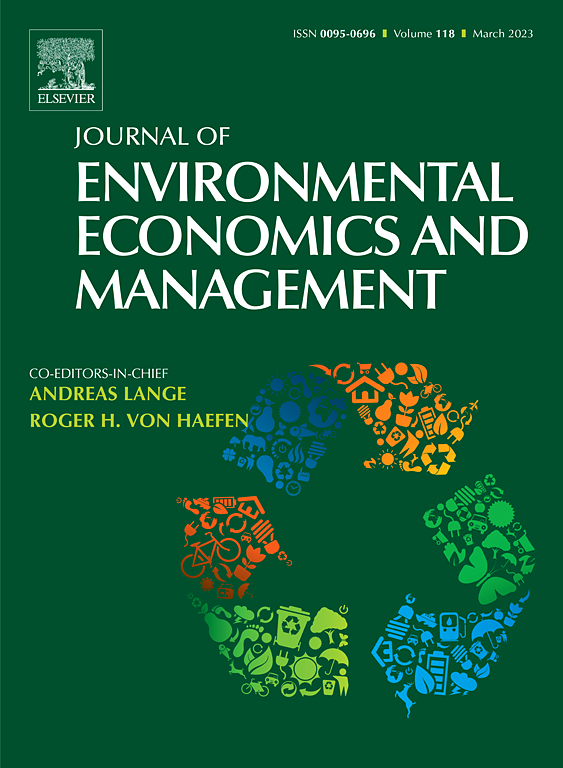
Natural Disasters and Bank Stability: Evidence from the U.S. Financial System
in: Journal of Environmental Economics and Management, May 2023
Abstract
We show that weather-related natural disasters in the United States significantly weaken the financial stability of banks with business activities in affected regions. This is reflected in higher probabilities of default, lower z-scores, higher non-performing assets ratios, higher foreclosure ratios, lower returns on assets and lower equity ratios of affected banks in the years following a natural disaster. The effects are economically relevant and highlight the financial vulnerability of banks and their borrowers despite insurances and public aid programs.
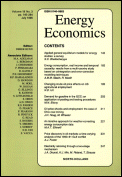
The Impact of Lowering Carbon Emissions on Corporate Labour Investment: A Quasi-Natural Experiment
in: Energy Economics, May 2023
Abstract
We examine the impact of low-carbon city (LCC) initiatives on labour investment decisions (quantity, quality, and well-being). Using a time-varying difference-in-differences approach based on staggered implementations of such a pilot program, we report an inefficient outcome - absolute deviation of labour investment from the optimal net hiring – especially for firms in labour-intensive industries and firms with high financial slack or adjustment costs. We, however, observe increased investments in highly skilled personnel and compensated with employee stock ownership, especially by firms under intense pressure to reduce carbon emissions. Such initiatives are also closely associated with the significant enhancement of workplace safety. Overall, LCC helps to upgrade the corporate labour structure by hiring more skilled employees through reduced agency problems and heightened green innovation.
Working Papers
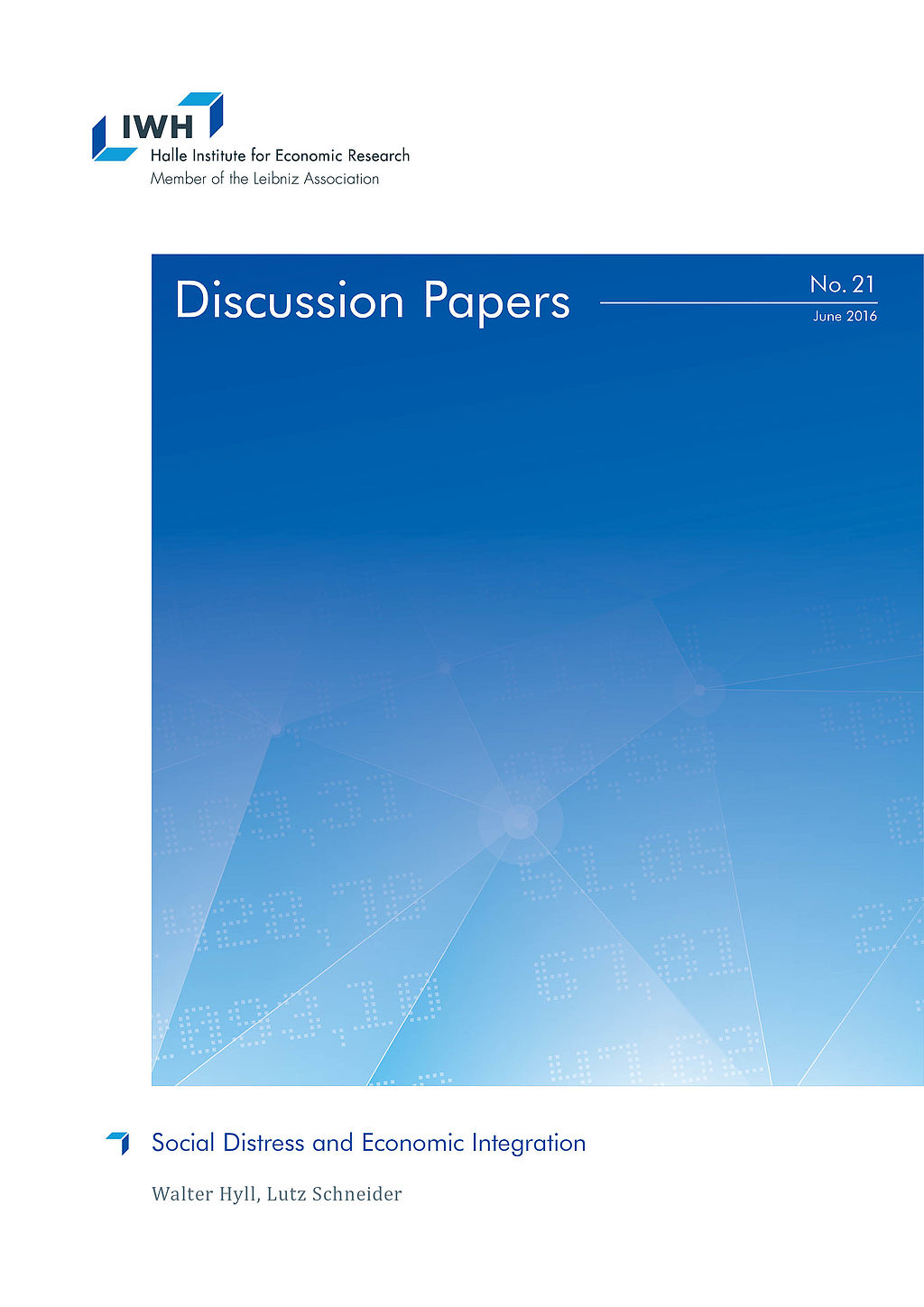
Corporate Governance Structures and Financial Constraints in Multinational Enterprises – An Analysis in Selected European Transition Economies on the Basis of the IWH FDI Micro Database 2013 –
in: IWH Discussion Papers, No. 3, 2015
Abstract
In our analysis, we consider the distribution of decision power over financing and investment between MNEs’ headquarters and foreign subsidiaries and its influence on the foreign affiliates’ financial restrictions. Our research results show that headquarters of multinational enterprises have not (yet) moved much decision power to their foreign subsidiaries at all. We use data from the IWH FDI Micro Database which contains information on corporate governance structures and financial restrictions of 609 enterprises with a foreign investor in Hungary, Poland, the Czech Republic, Slovakia, Romania and East Germany. We match data from Bureau van Dijk’s AMADEUS database on financial characteristics. We find that a high concentration of decision power within the MNE’s headquarter implicates high financial restrictions within the subsidiary. Square term results show, however, that the effect of financial constraints within the subsidiary decreases and finally turns insignificant when decision power moves from headquarter to subsidiary. Thus, economic policy should encourage foreign investors in the case of foreign acquisition of local enterprises to leave decision power within the enterprise and in the case of Greenfield investment to provide the newly established subsidiaries with as much power over corporate governance structures as possible.


















